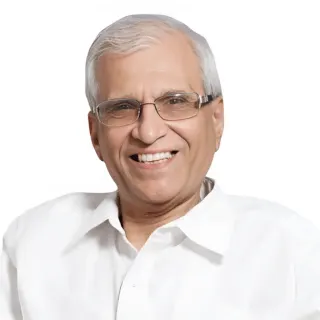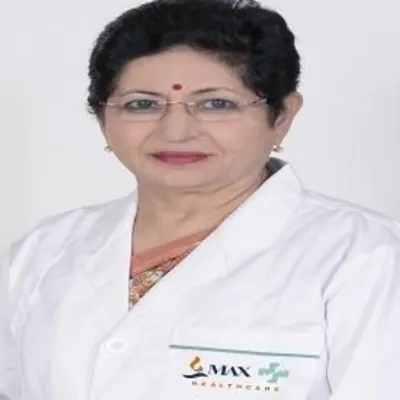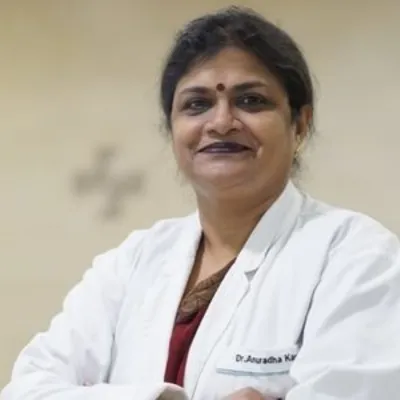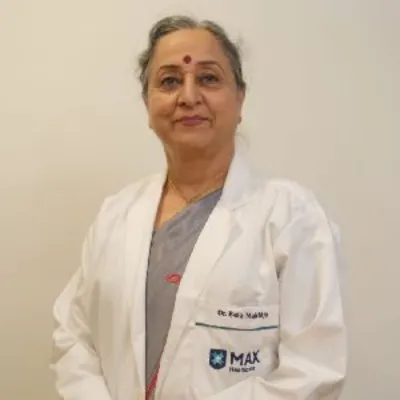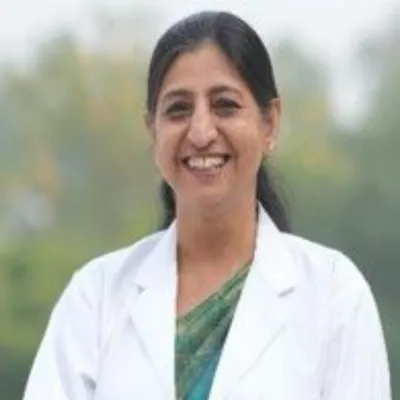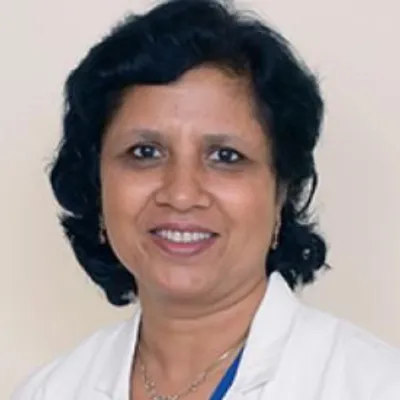Best Liver Transplant Surgeons in Artemis Hospital Gurgaon
 24 December,2025
Read More
24 December,2025
Read More
Enquire now in case of any assistance needed
 19 November,2024
19 November,2024
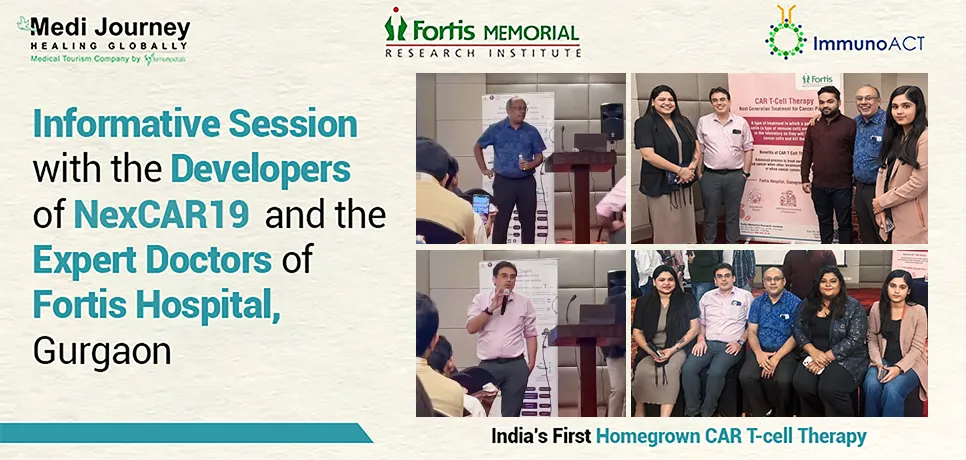
Cancer care in India witnessed a groundbreaking milestone during the CAR T-Cell Therapy event hosted by Fortis Memorial Research Institute, Gurgaon. This remarkable event, attended by industry leaders and innovators, spotlighted CAR T-Cell Therapy, a revolutionary approach to treating specific blood cancers. The therapy has been introduced in India under the brand name ImmunoACT NexCAR19, thanks to the tireless efforts of a dedicated IIT Bombay team led by Mr. Sirish Arya, Mr. Rahul Purwar, and Mr. Atharv Karulkar. Their journey spanned over eight years of rigorous research and innovation, marking a monumental achievement in India's medical landscape.
Fill up the form and get assured assitance within 24 hrs!
Chimeric antigen receptor T-cell therapy, or CAR T-cell therapy, is an advanced treatment modality in which a patient's immune cells are modified to target and destroy cancer cells. This therapy has emerged as a hope for patients battling B-ALL (B-cell Acute Lymphoblastic Leukemia) and B-NHL (B-cell non-Hodgkin lymphoma), two aggressive forms of blood cancers.
Dr. Rahul Bhargava and Dr. Vikas Dua explained how NexCAR19 is a promising treatment for blood cancers, including:
ImmunoACT was established in 2018. It spun out of the Bioscience and Bioengineering Lab at IIT Bombay and was supported by the Society for Innovation and Entrepreneurship (SINE), an organization at IIT Bombay that fosters entrepreneurship. ImmunoACT offers affordable, life-saving cell and gene therapies. It is the culmination of research efforts that began in 2013.
From the initial design to the final product, research and development to clinical trials and commercialization, ImmunoACT is a fully integrated cell and gene therapy company that adheres to the highest global standards of cell therapy manufacturing. Their therapies against cancer are designed to train patients' immune systems to do the job they were always meant to do, i.e., destroy tumors. They encode the right instructions in the cells to fight specific cancers, preferably as single-dose treatments.
The treatment process of NexCAR19 CAR T-cell therapy can be divided into three basic steps: leukapheresis, interim, and infusion and monitoring.
NexCAR19 may be considered by your hematologist or medical oncologist if you are 15 years of age or older and were diagnosed with a B-cell non-Hodgkin's lymphoma or B-cell acute lymphoblastic leukemia and one of the following has occurred:
Some of the clinical factors in choosing NexCAR19 as a potential option are:
Your treatment team will schedule a cell collection process called leukapheresis based on the following factors.
The cost of CAR T-cell therapy in India ranges from USD 60,000 to USD 75,000. NexCAR19 is available across 18+ towns and cities in India within the same price range. Innovative cancer treatments like NexCAR19 are more affordable in India than in international markets while maintaining global standards. This pricing reflects a significant step toward making cutting-edge cancer treatment accessible to Indian patients and beyond.
NexCAR19 is one of the safest CAR T-cell therapies as it is humanized and personalized for the patient. However, a few potential side effects can occur as a response from the immune system. These effects are:
Before receiving NexCAR19 therapy, inform your doctor about all your current and past medical issues, such as neurological problems (seizures, stroke), heart issues, lung diseases, liver and kidney problems, and infections.
It is advised to tell your physician about all the medications you are taking, including herbal supplements, prescribed drugs, vitamins, and over-the-counter drugs. Inform them about your pregnancy status and if you are planning to be pregnant soon.
Once the doctors have found you fit for NexCAR19, they will initiate the treatment process. After the treatment is done, there are certain restrictions that patients must comply with for a healthy recovery. These include:
Our team members were fascinated by the innovative treatment technique and asked a few questions to understand CAR T-cell therapy better.
Ques. Why does it take a few weeks for NexCAR19 to be administered? How is this different from other drugs?
Ans. NexCAR 19 is made from a patient's own T-cells. The cells are sent to a controlled laboratory, cultured, modified, and multiplied to reach a desirable dose. This takes approximately 19 days from leukapheresis.
Ques. How many days after the therapy would CRS be expected? Is it long-term?
Ans. Cytokine release syndrome is the most frequent side effect of the therapy, but it is expected within the first 4 weeks of the infusion, not long term.
Ques. How common are the serious side effects?
Ans. In clinical trials, severe symptoms were seen in 5% of patients. These side effects may depend upon several factors, including the pre-existing disease burden and your clinical condition.
Ques. How many days will patients need to follow up with their treating doctors?
Ans. After discharge, patients may be asked to follow up weekly or twice a week for the first month. The frequency of follow-up will decrease with time based on the physician's discretion. If patients achieve remission beyond 6 months, this frequency may be shortened to twice a year, but it is recommended that follow-ups continue for up to 15 years.
The introduction of ImmunoACT NexCAR19 represents a major leap forward for India in immunotherapy. It positions the country as a leading player in the global fight against cancer, offering hope to countless patients while showcasing the potential of Indian research and innovation.
The CAR T-Cell Therapy event at FMRI, Gurgaon, not only celebrated a significant medical achievement but also set the stage for transformative cancer care in India. The collaborative efforts of scientists, oncologists, and healthcare institutions underscore the power of innovation and dedication in overcoming some of the most challenging medical conditions.
With pioneers like Mr. Sirish Arya and the team at ImmunoACT, India is poised to take charge of delivering advanced, life-saving therapies to the world. The future of cancer care has never looked brighter.
Fill up the form and get assured assitance within 24 hrs!
Doctor of Pharmacy
Dr. Deepanshu Siwach is a skilled clinical pharmacist with a Doctor of Pharmacy degree.?He has 4+?years of experience and has worked with thousands of patients. He has been associated with some of the top hospitals, such as Artemis Gurgaon.
Director
Bone Marrow Transplant Surgeon, Hemato-Oncologist, Pediatric Hematologist, Pediatric Oncologist
Dr. Vikas Dua is a Pediatric Hematologist and BMT specialist with 22 years of experience. He specializes in Pediatric Hematology, Hemato-Oncology, and Transplants, having performed 1000+ transplants with his team....
Senior Consultant
Medical Oncologist
Nanavati Super Specialty Hospital, Mumbai
WhatsApp UsSenior Director
Gynecologist and Obstetrician, IVF Specialist
Max Super Speciality Hospital, Shalimar Bagh, New Delhi
WhatsApp UsSenior Director
Gynecologist and Obstetrician, IVF Specialist
Max Smart Super Speciality Hospital, Saket, New Delhi
WhatsApp UsSenior Director
Gynecologist and Obstetrician
Max Smart Super Speciality Hospital, Saket, New Delhi
WhatsApp UsSenior Director
Gynecologist and Obstetrician
Max Smart Super Speciality Hospital, Saket, New Delhi
WhatsApp UsSenior Director
Gynecologist and Obstetrician
Max Smart Super Speciality Hospital, Saket, New Delhi
WhatsApp UsThe Art of Effective Communication
 24 December,2025
Read More
24 December,2025
Read More
 23 December,2025
Read More
23 December,2025
Read More
 17 December,2025
Read More
17 December,2025
Read More
 16 December,2025
Read More
16 December,2025
Read More
 10 December,2025
Read More
10 December,2025
Read More
 09 December,2025
Read More
09 December,2025
Read More
Trusted by Patients
"I am Asim from Bangladesh and was looking for treatment in India for neuro. I visited many websites to get the complete information regarding the treatment but I was not satisfied as I was getting confused. In the meanwhile, one of my friends suggested I seek help from Medi Journey as he experienced his medical journey very smoothly and was satisfied with it. They have filtered the top 10 doctors as per experience, the success rate of surgery & profile, so it helps us to choose the best treatment in India. "
"For my knee surgery, Medi Journey guided me to BLK Hospital where I received exceptional care. The team's support and the expertise at BLK Hospital exceeded my expectations. Thank you Medi Journey for making my medical journey stress-free. "
"I came from Iraq for my granddaughter's eye surgery in India facilitated by Medi Journey, due to critical cases they advised us to get a second opinion from the different hospitals before going to surgery. Finally, we went to Fortis Escort Hospital, which helped us to get more confidence for diagnosis. Fortis Escort Hospital has the best eye surgeon team with the latest instruments. Thanks to all team members for providing a high-quality treatment in India at an affordable cost. "
"I came for my hair transplant in India, before coming I was so confused about choosing the best clinic and surgeon for me. But thanks to God one of my friends had a hair transplant in India through Medi Journey. He recommended me to go with them. I am completely happy with my experience with them. They were always very fast in their responses to me. the success rate of my hair transplant surgery is 100%."
"Artemis Hospital, suggested by Medi Journey, turned out to be a great choice for my treatment. The personalized assistance and medical care were exceptional. I'm grateful to Medi Journey for guiding me to a hospital that perfectly matched my needs. Highly recommended! "
"I came from Afghanistan for my treatment in India at Jaypee Hospital, Noida. I had a fantastic experience with Medi Journey. Kudos to them for their incredible support during my medical journey. They not only took care of all the logistics but also connected me with a fantastic healthcare team. Efficient, caring, and highly recommended for a hassle-free medical tourism experience."
"I am Adam from Kano, Nigeria, one of my friends from Nigeria was facilitated by Medi Journey, and he recommended us to go with them. I sent my all reports to them and within 48 hours they reverted with 4 options from different hospitals. They helped me to get a Visa letter from the hospital, arrange pick-up from the airport, and book a hotel for me. Their team is very honest and throughout our stay in India they are with us they are caring for us like his family members. BLK Hospital is the best hospital in India with a top surgical oncologist surgeon team, a very advanced OT, and a Radiotherapy department. I wish more success to Medi Journey. "
"Great experience at the Max Hospital for my spine surgery and was successfully done. I thank my neurosurgeon and his entire team. I recommended all of my country's people to Medi Journey for treatment in India, they choose the best hospital, the best doctors, and the best cost for patients."
"I came to India from Dhaka, Bangladesh for my father-in-law's cardiac surgery at Fortis Hospital. I was confused about choosing the best surgeon for him before coming, but their team helped me to choose the best hospital and best cardiac surgeon in India with very good cost and 100% success rate of surgery. I am very happy with the services, really they make my journey so comfortable that make me feel at home. Thanks again and I like people to choose "Medi Journey" as your travel guide. "
"I am Mohammad from Bangladesh came to India for my general health checkup. Medi Journey offers me the complete package including Pick-up from the airport, hotel services, and 24-hour assistance. They guide you to choose the best hospital in India, the best cost of treatment with top-most doctors and give you complete information about hotel booking, and pick-up from the airport before coming to India They have the best team to help. Always choose Medi Journey for your treatment in India."
